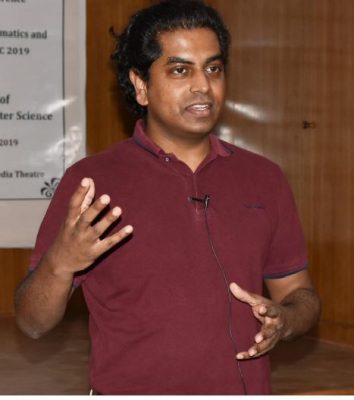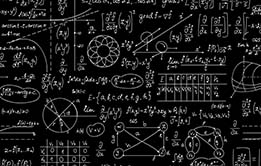Description
The course will be an introduction to Discrete Mathematics which comprises of the essentials for a computer science student to go ahead and study any other topics in the subject. The emphasis will be on problem solving as well as proofs. We will be providing motivational illustrations and applications through out the course. The course doesn’t assume any pre-requisites except for high school level arithmetic and algebra.
INTENDED AUDIENCE
Any Interested Learners
INDUSTRY SUPPORT
Every industry expects candidates to have good aptitude. This course sharpens the overall Quant skills.
ABOUT THE INSTRUCTOR

Prof. Sudarshan Iyengar, Associate Professor at the CSE at IIT Ropar has a Ph.D. from the Indian Institute of Science (IISc). An exemplary teacher who has delivered over 350 popular science talks to students of high school and advanced graduate programmes. Dr. Sudarshan has offered more than 100 hours of online lectures with novel teaching methodologies that have reached lakhs of Students. His research interests include Data Sciences, Social Computing, Social Networks, Collective Intelligence, Crowdsourced Technologies and Secure Computation

Prof. Prabuchandran K.J. is an Assistant Professor at IIT Dharwad. He completed Ph.D. from the Department of Computer Science and Automation, IISc in the area of Reinforcement Learning. Post his PhD, Prabuchandran worked as Research Scientist at IBM Research Labs, India for an year and half on change detection algorithms for multivariate compositional data. After that he pursued his postdoctoral research at IISc, Bangalore as an Amazon-IISc Postdoctoral scholar for an year and half on Multi-agent Reinforcement Learning and Stochastic Optimization algorithms. His research lies in the intersection of reinforcement learning, stochastic control & optimization, Machine Learning, Bayesian Optimization and stochastic approximation algorithms. His research interest also focuses on utilizing techniques from these fields in solving problems arising in applications like wireless sensor networks, traffic signal control and social networks.
Certification Process
1. Join the course
Learners may pay the applicable fees and enrol to a course on offer in the portal and get access to all of its contents including assignments. Validity of enrolment, which includes access to the videos and other learning material and attempting the assignments, will be mentioned on the course. Learner has to complete the assignments and get the minimum required marks to be eligible for the certification exam within this period.
COURSE ENROLMENT FEE: The Fee for Enrolment is Rs. 3000 + GST
2. Watch Videos+Submit Assignments
After enrolling, learners can watch lectures and learn and follow it up with attempting/answering the assignments given.
3. Get qualified to register for exams
A learner can earn a certificate in the self paced course only by appearing for the online remote proctored exam and to register for this, the learner should get minimum required marks in the assignments as given below:
CRITERIA TO GET A CERTIFICATE
Assignment score = Score more than 50% in at least 9/12 assignments.
Exam score = 50% of the proctored certification exam score out of 100
Only the e-certificate will be made available. Hard copies will not be dispatched."
4. Register for exams
The certification exam is conducted online with remote proctoring. Once a learner has become eligible to register for the certification exam, they can choose a slot convenient to them from what is available and pay the exam fee. Schedule of available slot dates/timings for these remote-proctored online examinations will be published and made available to the learners.
EXAM FEE: The remote proctoring exam is optional for a fee of Rs.1500 + GST. An additional fee of Rs.1500 will apply for a non-standard time slot.
5. Results and Certification
After the exam, based on the certification criteria of the course, results will be declared and learners will be notified of the same. A link to download the e-certificate will be shared with learners who pass the certification exam.
CERTIFICATE TEMPLATE

Course Details
Week 1: Counting
Week 2: Set Theory
Week 3: Logic
Week 4: Relations
Week 5: Functions
Week 6: Mathematical Induction and Pegionhole Principle
Week 7: Graph Theory - 01
Week 8: Graph Theory - 02
Week 9: Graph Theory - 03 and Generating Functions
Week 10: Principle of Inclusion-Exclusion
Week 11: Recurrence relations
Week 12: Advanced Topics
Books and References:
1. Discrete and Combinatorial Mathematics by Ralph P Grimaldi
2. Discrete Mathematics and its Applications by Kenneth H Rosen





Reviews
There are no reviews yet.